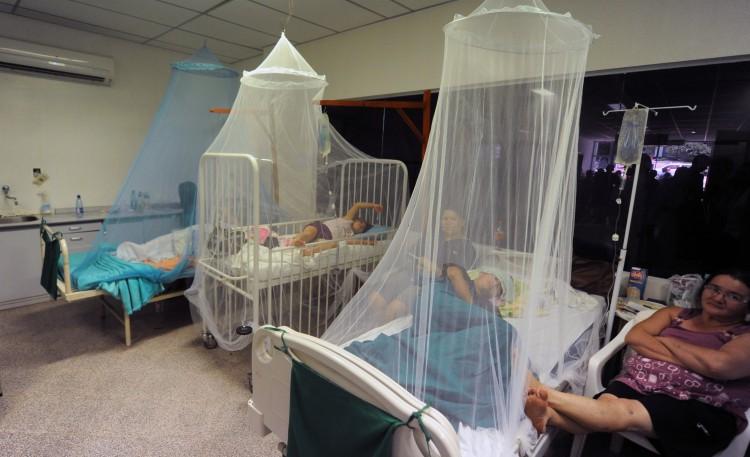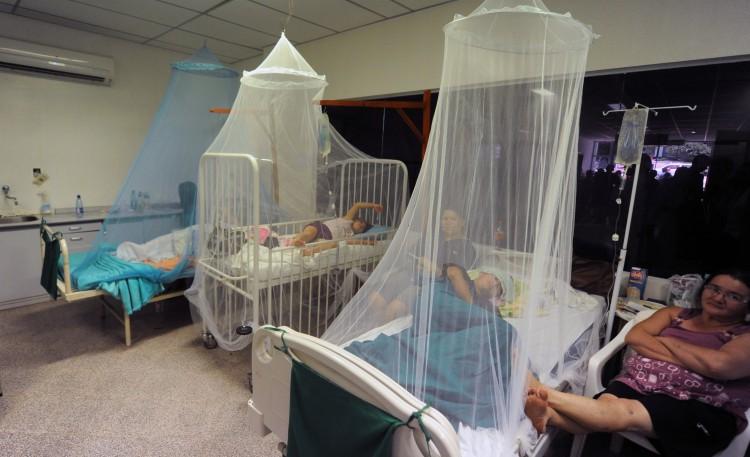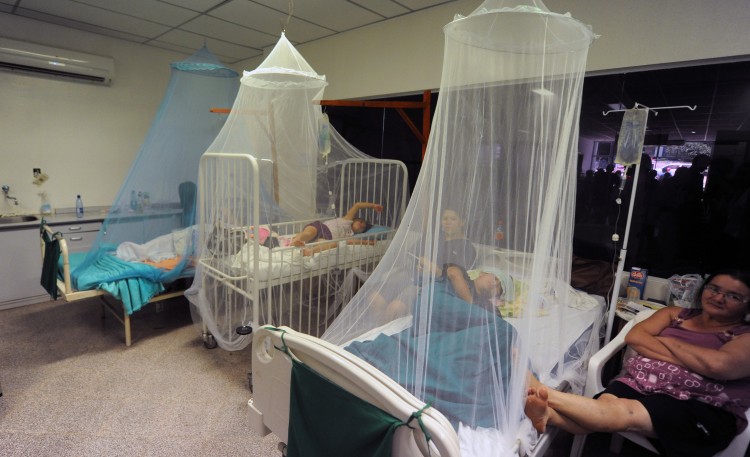Dengue fever is the fastest spreading tropical disease in the world and has “an epidemic potential” after seeing a thirtyfold increase over the past 50 years, the World Health Organization warned Wednesday.
The agency blamed climate change and more movement of people across the world for the proliferation of the disease, which is spread via mosquitoes.
Highlighting just how quickly the disease has spread, the organization said that only three to eight countries reported cases of dengue in the mid-1950s. But now, dengue has spread to more than 125 countries, mainly near and along the equator and tropics.
“Although the full global burden of the disease is uncertain, the patterns are alarming both for human health and the global economy,” the WHO report said.
According to Reuters, Europe in 2012 experienced its first dengue outbreak in nearly a century after 2,000 people on the Portuguese island of Madeira were sickened.
Around 2 million new cases of dengue are reported each year, causing some 5,000 to 6,000 deaths. The best vaccine against the disease is only around 30 percent effective, according to the news agency.
“Dengue is the most threatening and fastest spreading mosquito-borne disease. It is pandemic-prone, but it is a threat only. Definitely a bigger threat now than ever,” Raman Velayudhan, a specialist with the WHO’s tropical diseases department, told Reuters.
Velayudhan said that the WHO’s estimates of 2 million new cases per year is likely not nearly enough. He said there are probably 50 million cases a year, causing as many as 20,000 deaths per year, reported AFP.
Dengue is one of several viruses carried by the Aedes aegypti mosquito. The disease causes fever, joint pains, itching, and headaches, but some suffer more severe symptoms, including severe bleeding, which can lead to hospitalization or death.
Velayudhan said at a news conference that the mosquito “has silently expanded its distribution” in recent years, reported Reuters. “So today you have (the) aedes mosquito in over 150 countries. The threat of dengue exists all across the globe.”
Malaria, another mosquito-borne disease, has caused far more deaths but is currently on the decline, with reports of cases in less than 100 countries, according to Reuters.
“We are trying to address this in a more systematic way, by controlling entry of vectors at points of entry—seaports, airports, as well as the ground crossings,” Velayudhan said.
The WHO named dengue as 1 of 17 “neglected tropical diseases” that will be targeted by a global strategy that includes a supply of medications.
One of the illnesses, guinea-worm disease—which can produce a parasite as long as three feet—and yaws, an infection that attacks bone, skin, and joints, are targeted for worldwide eradication in 2015 and 2020, respectively.






